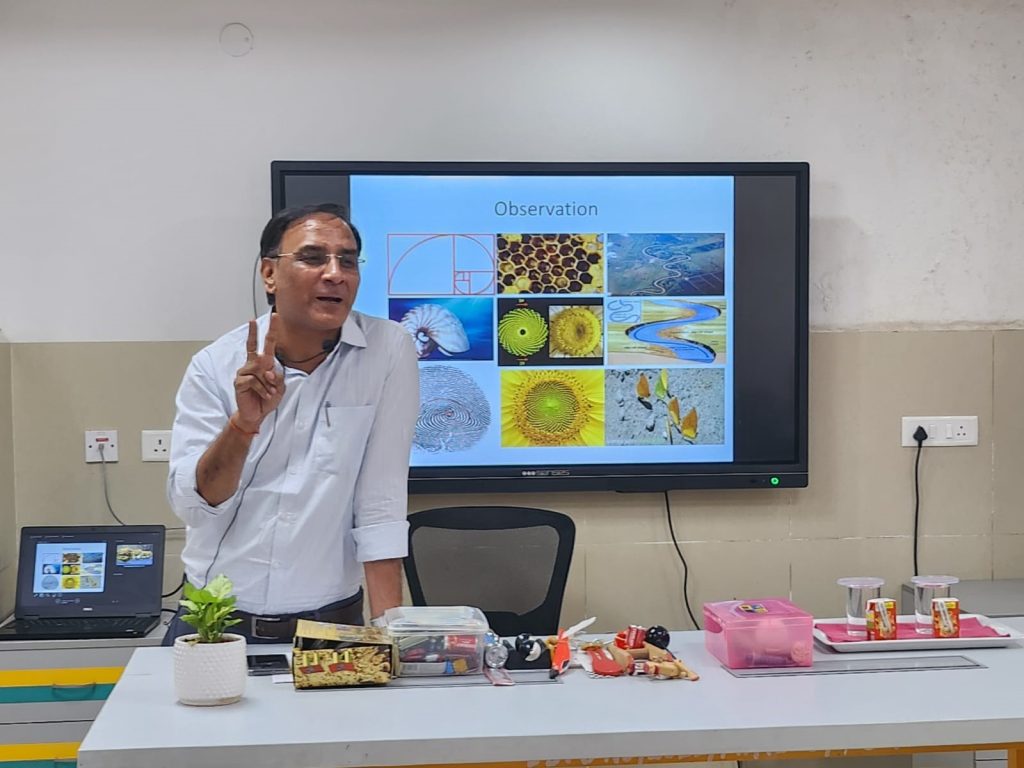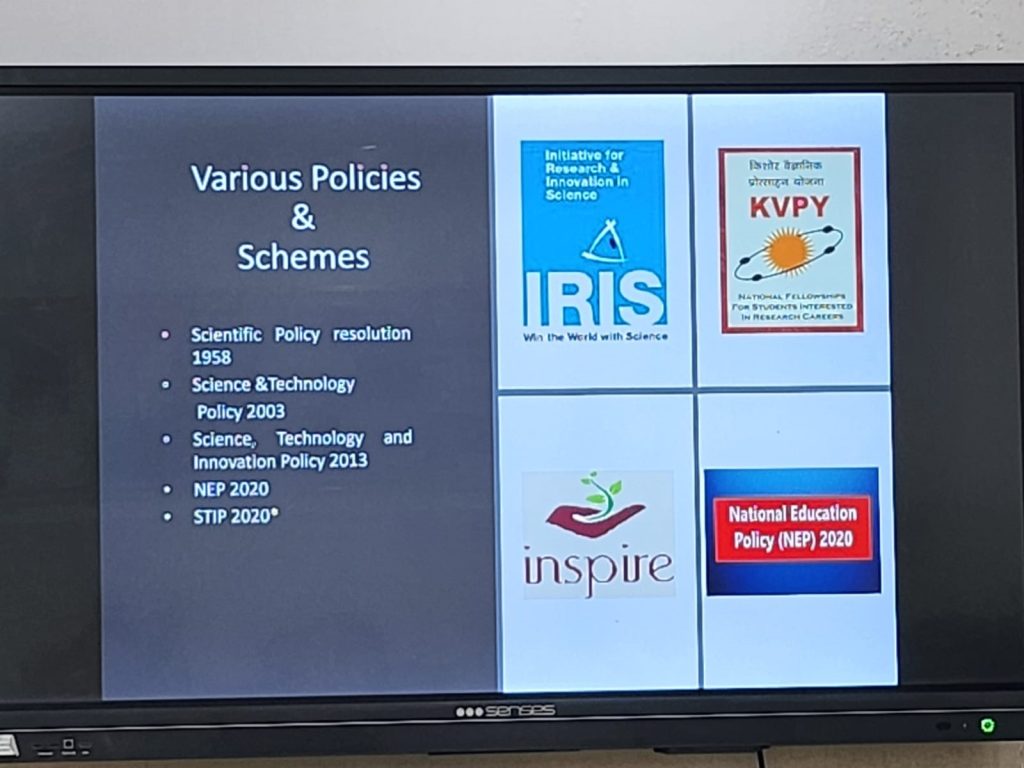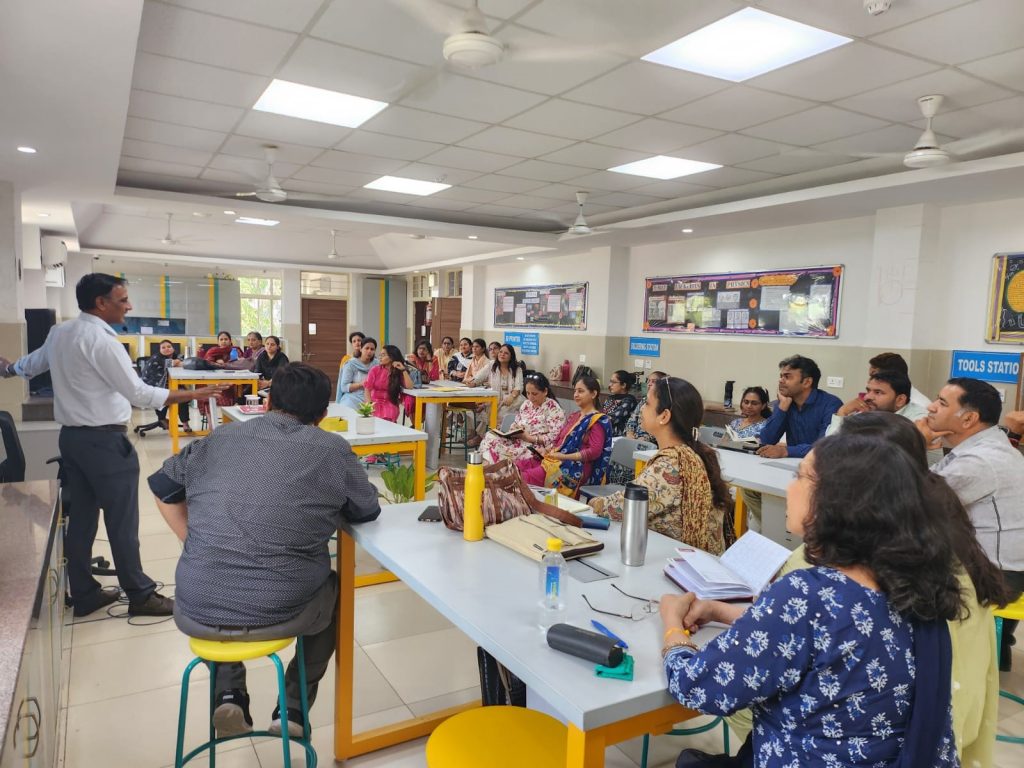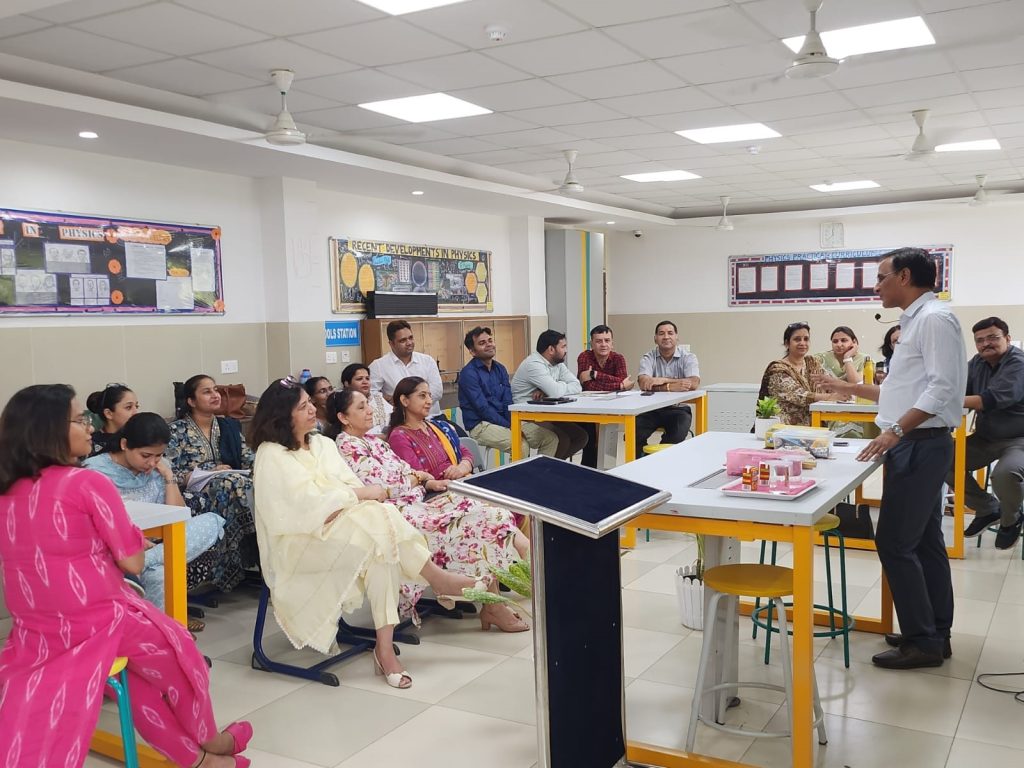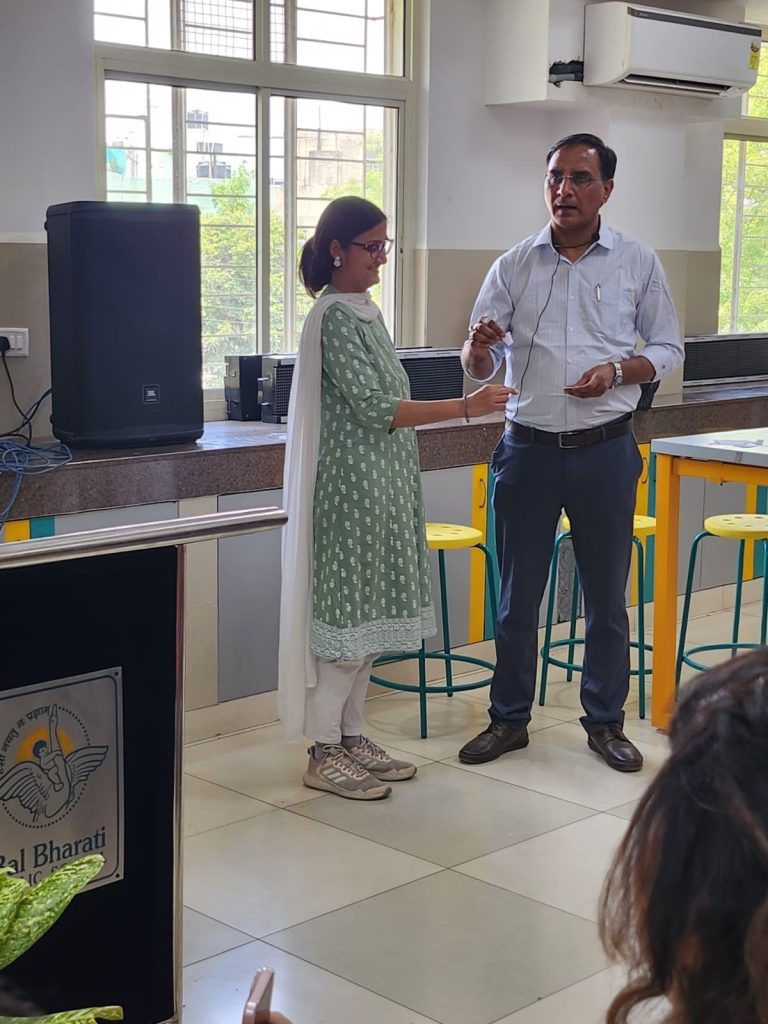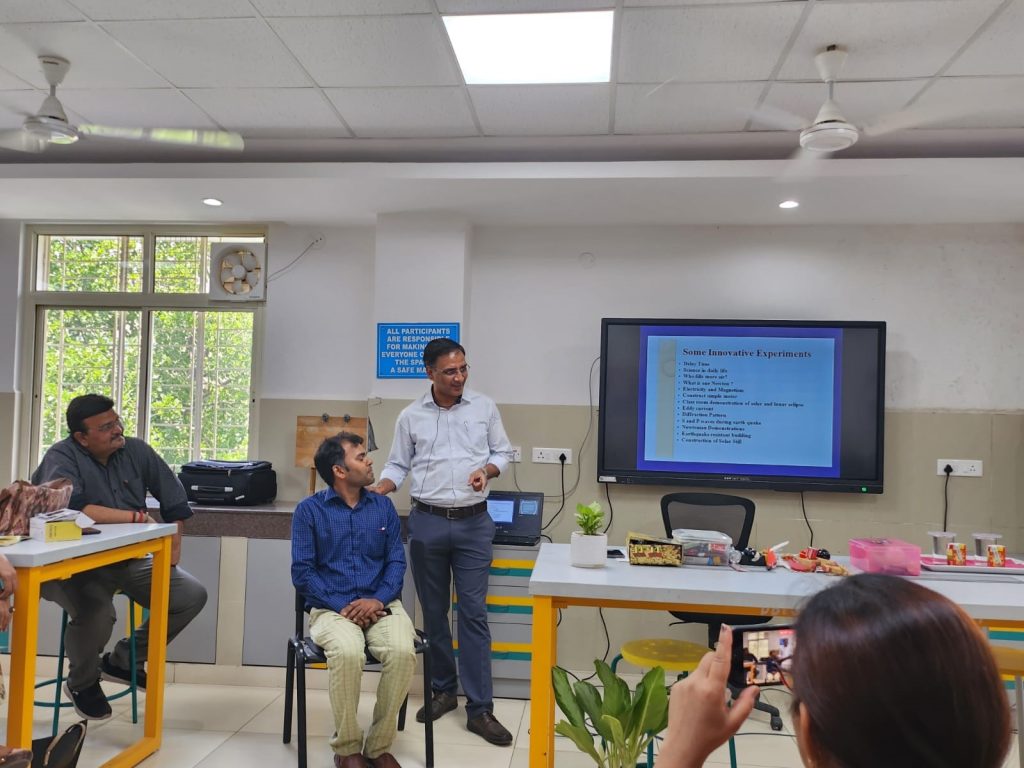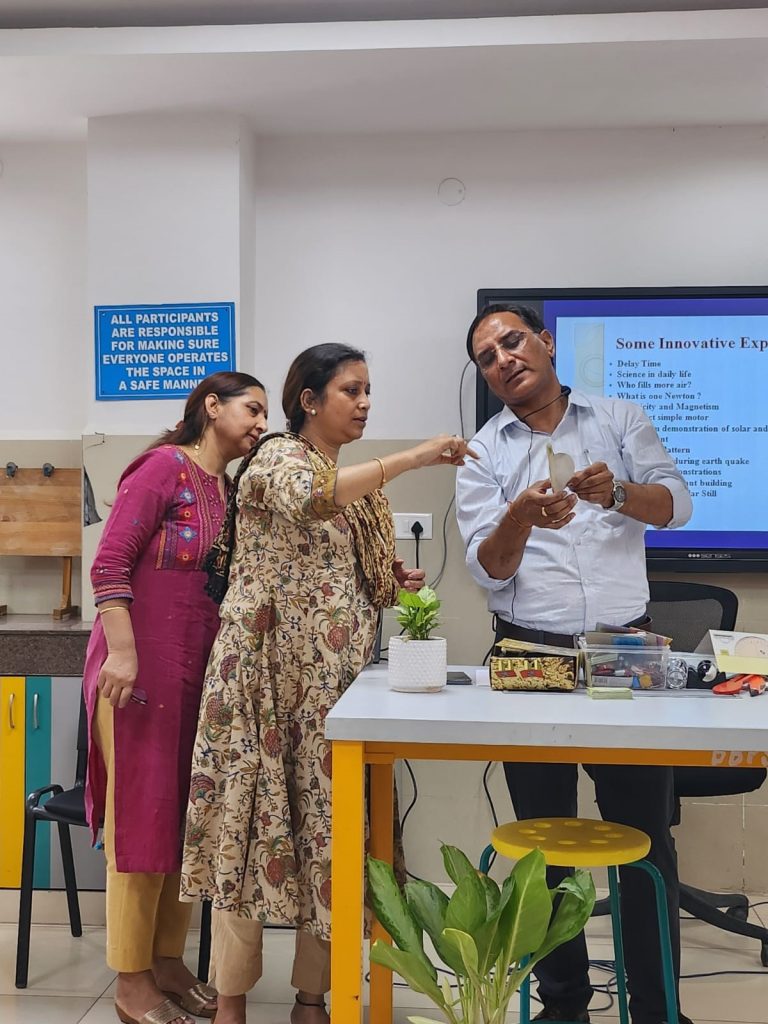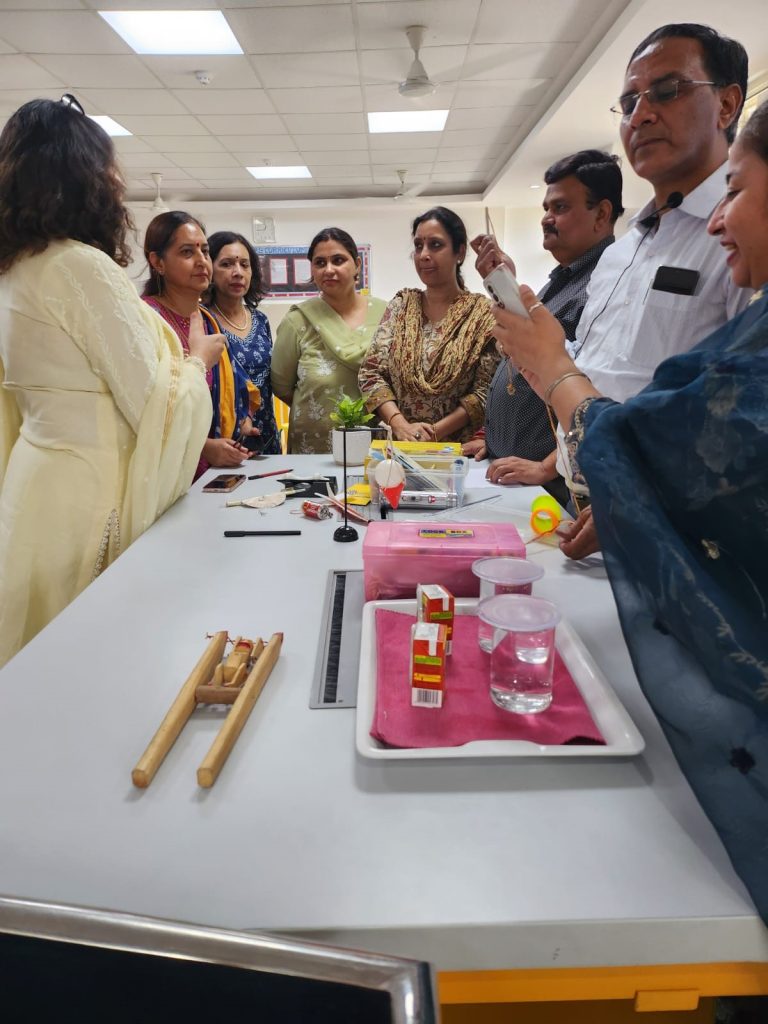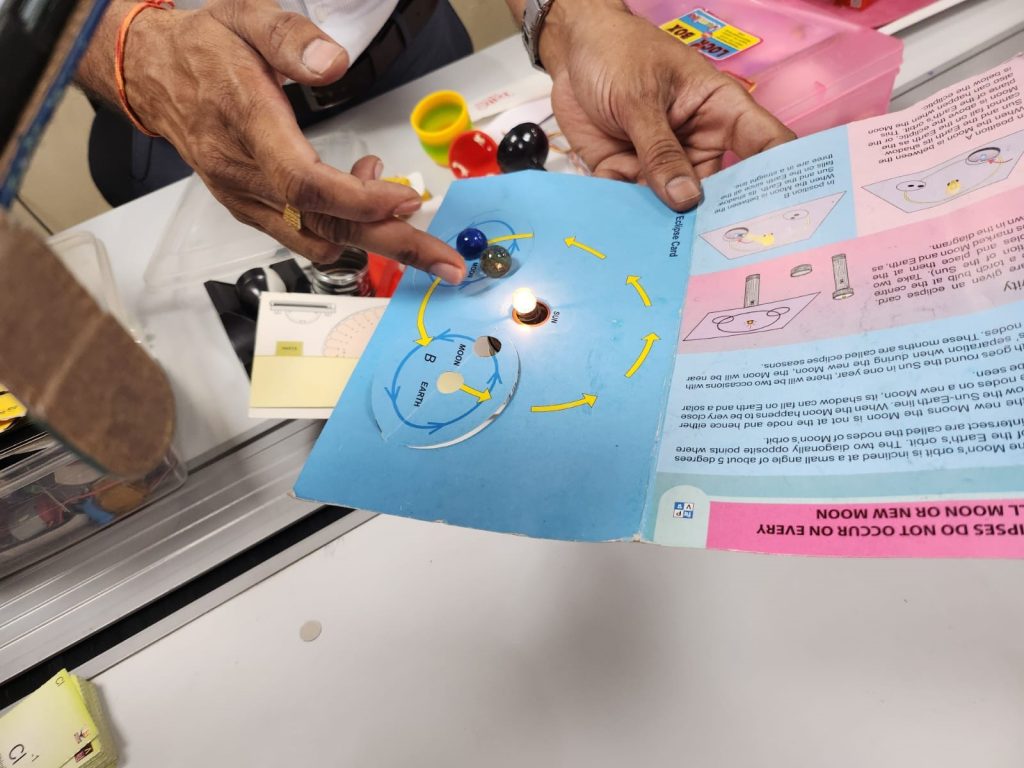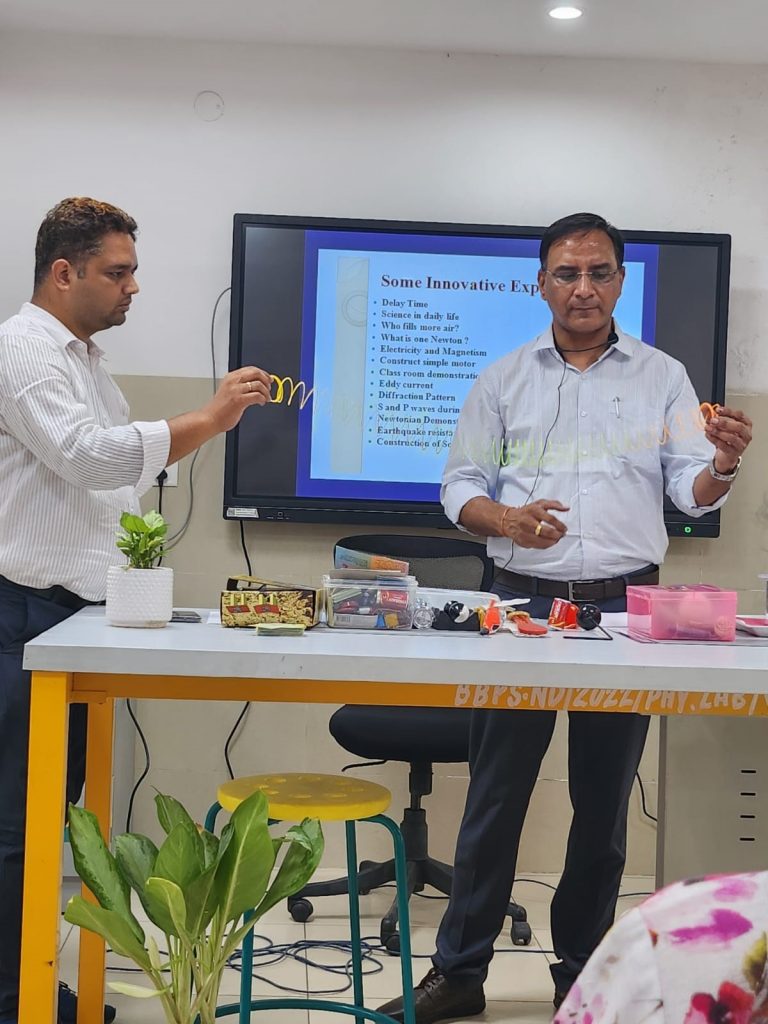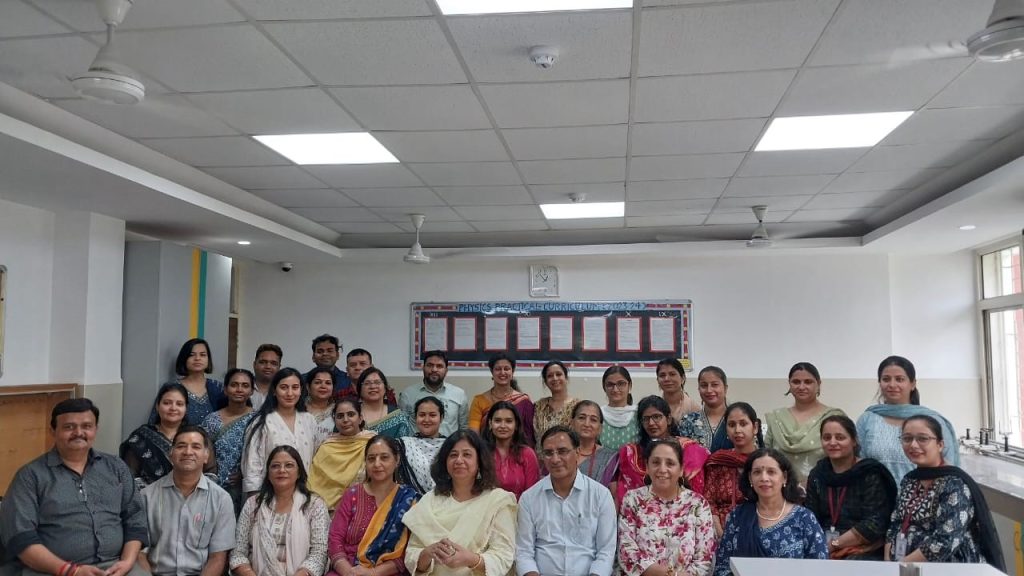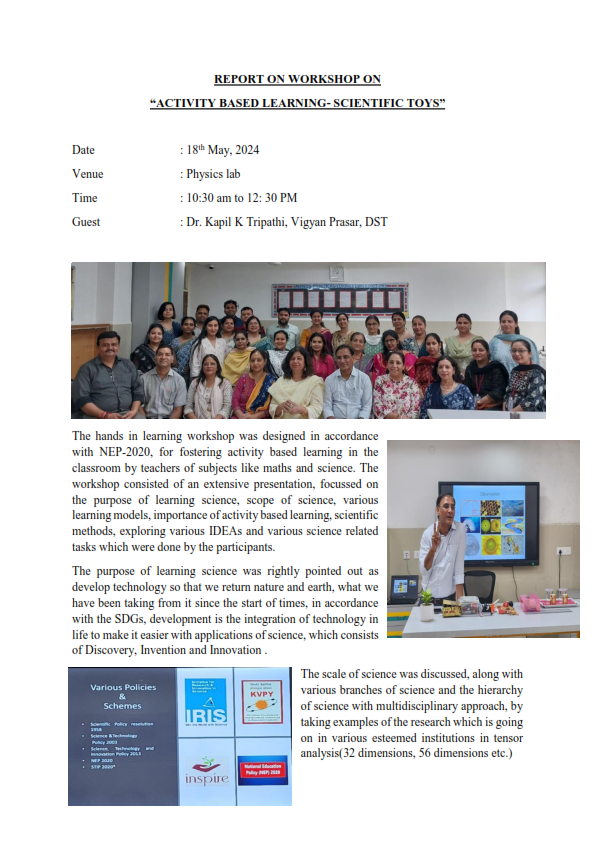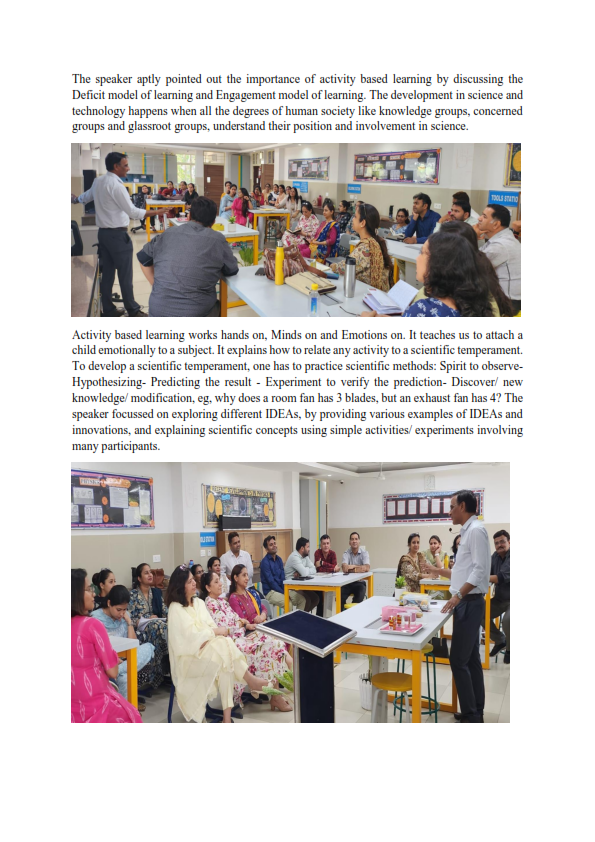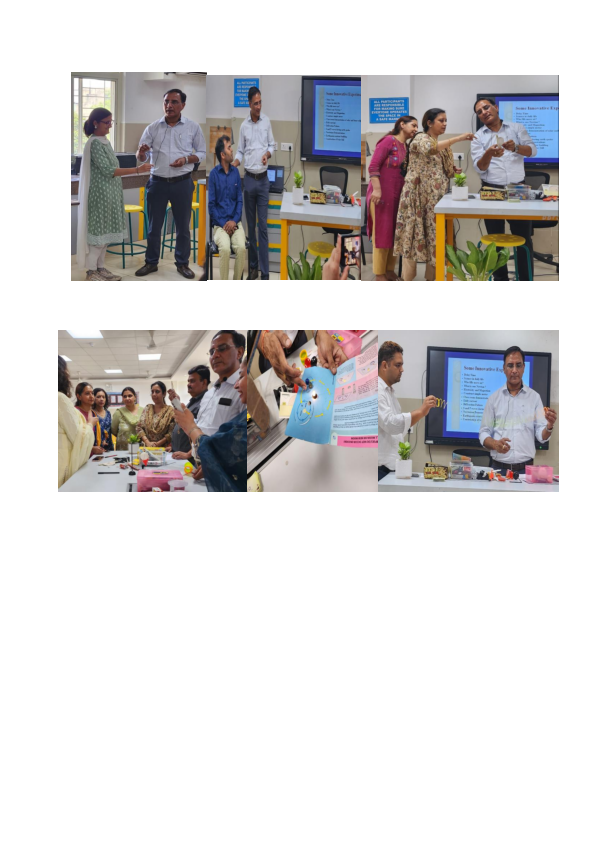REPORT ON WORKSHOP ON
“ACTIVITY BASED LEARNING- SCIENTIFIC TOYS”
Date : 18th May, 2024
Venue : Physics lab
Time : 10:30 am to 12: 30 PM
Guest : Dr. Kapil K Tripathi, Vigyan Prasar, DST
The hands in learning workshop was designed in accordance with NEP-2020, for fostering activity based learning in the classroom by teachers of subjects like maths and science. The workshop consisted of an extensive presentation, focussed on the purpose of learning science, scope of science, various learning models, importance of activity based learning, scientific methods, exploring various IDEAs and various science related tasks which were done by the participants.
The purpose of learning science was rightly pointed out as develop technology so that we return nature and earth, what we have been taking from it since the start of times, in accordance with the SDGs, development is the integration of technology in life to make it easier with applications of science, which consists of Discovery, Invention and Innovation.
The scale of science was discussed, along with various branches of science and the hierarchy of science with multidisciplinary approach, by taking examples of the research which is going on in various esteemed institutions in tensor analysis (32 dimensions, 56 dimensions etc.)
The speaker aptly pointed out the importance of activity based learning by discussing the Deficit model of learning and Engagement model of learning. The development in science and technology happens when all the degrees of human society like knowledge groups, concerned groups and glassroot groups, understand their position and involvement in science.
Activity based learning works hands on, Minds on and Emotions on. It teaches us to attach a child emotionally to a subject. It explains how to relate any activity to a scientific temperament. To develop a scientific temperament, one has to practice scientific methods: Spirit to observe- Hypothesizing- Predicting the result - Experiment to verify the prediction- Discover/ new knowledge/ modification, eg, why does a room fan has 3 blades, but an exhaust fan has 4? The speaker focussed on exploring different IDEAs, by providing various examples of IDEAs and innovations, and explaining scientific concepts using simple activities/ experiments involving many participants.

